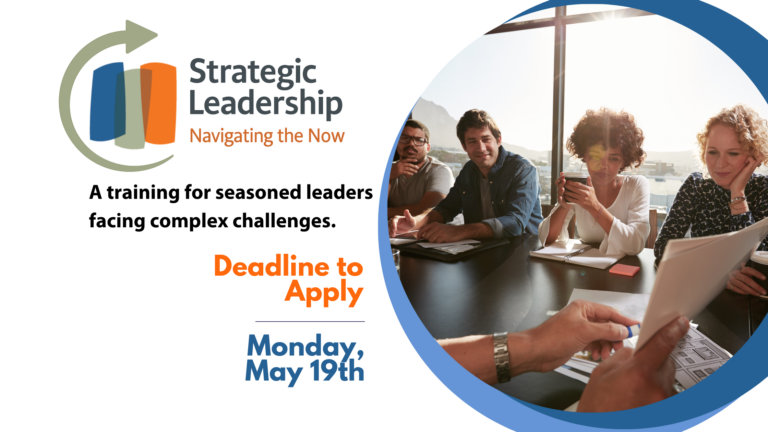
New from OneJustice! Strategic Leadership: Navigating the Now.
A Six-Month Advanced Virtual Program for Executive Directors Now Accepting Applications Deadline: 12:00 PM PST, Monday, May 19th Today’s Challenges

A Six-Month Advanced Virtual Program for Executive Directors Now Accepting Applications Deadline: 12:00 PM PST, Monday, May 19th Today’s Challenges
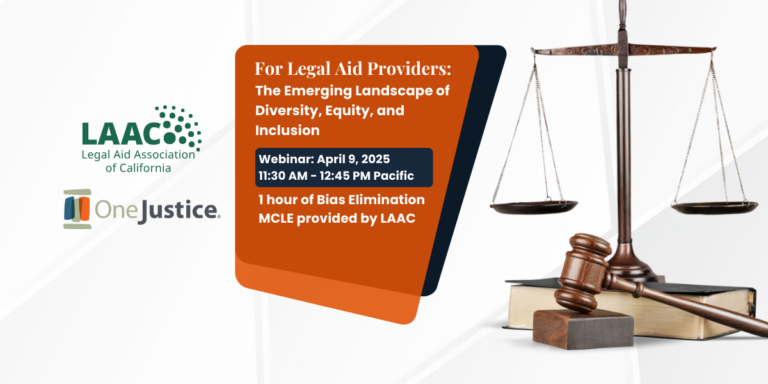
Please join OneJustice, Legal Aid Association of California (LAAC), Lawyers’ Committee for Civil Rights of the San Francisco Bay Area
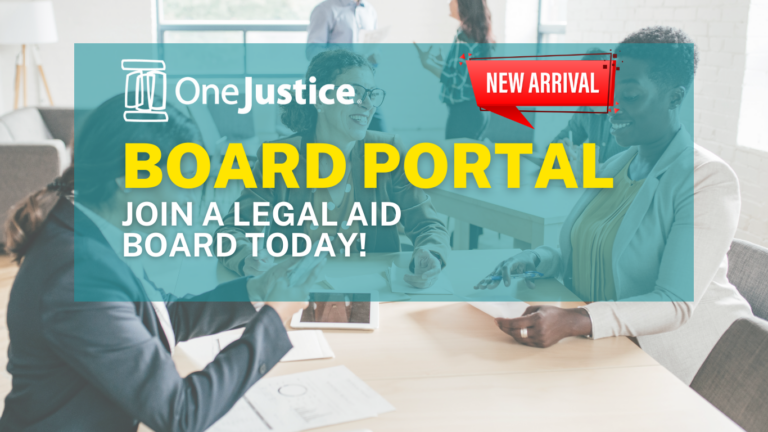
OneJustice’s Legal Services Board Portal is Live! NEW at OneJustice! Are you interested in joining a legal aid nonprofit board
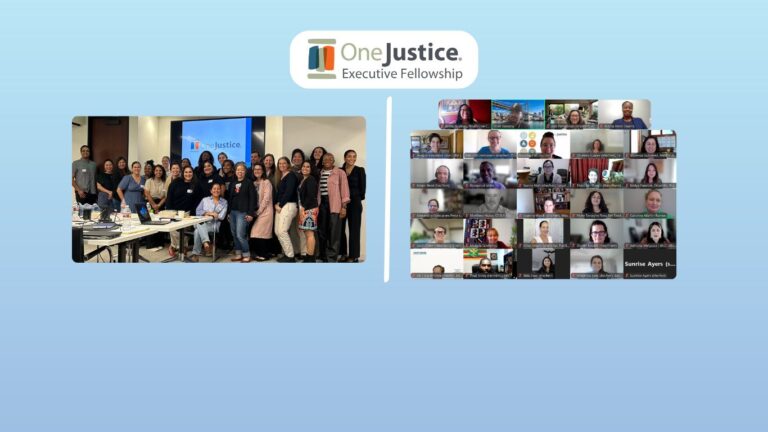
Welcome the 2025 Executive Fellowship Class! OneJustice kicked off its 15th Executive Fellowship class on September 19th with an extraordinary
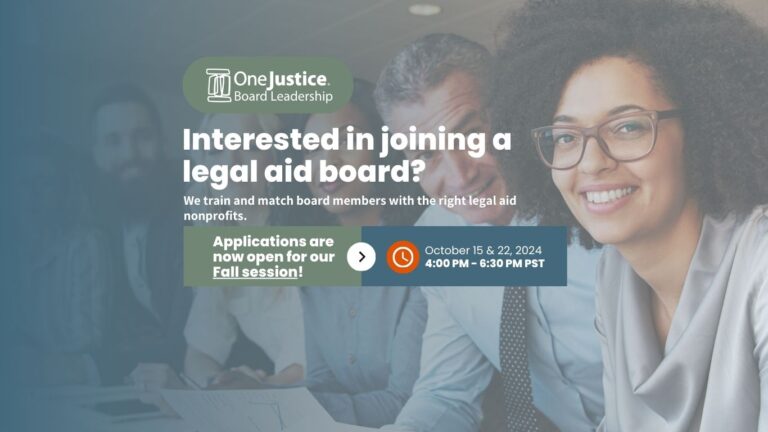
OneJustice’s Fall 2024 Legal Aid Board Leadership Program Is Accepting Applicants! OneJustice is excited to announce that we are accepting